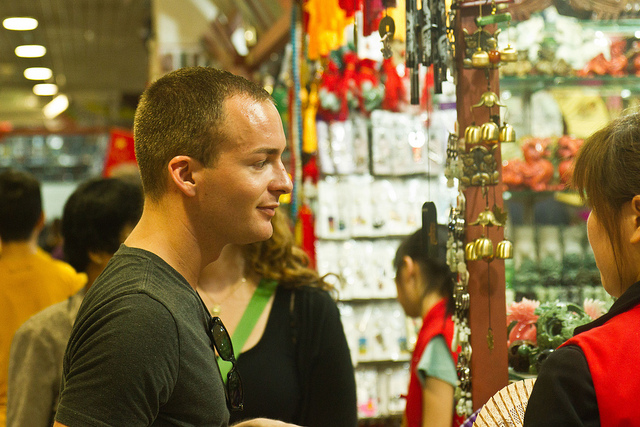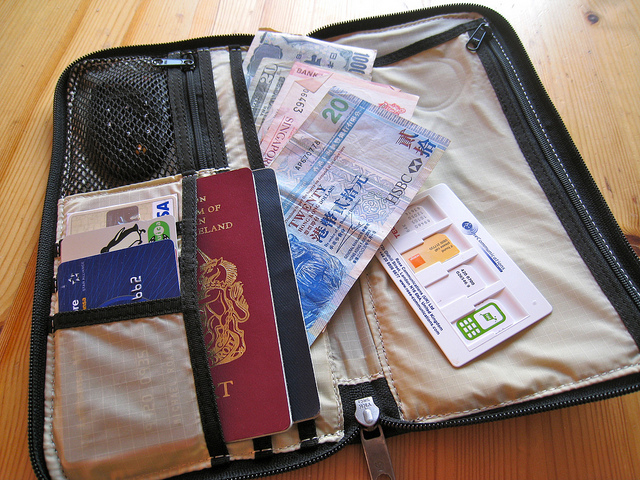Shopping seems so ridiculously simple at home: You go somewhere that sells things you want, you find the things you want, you pay for them, and you return home, ideally overjoyed with your new possessions. Travelers only wish the process were so simple abroad.
When traveling the world, shopping is hardly as easy as going to the mall and handing the cashier a crisp $20 bill. There are dozens of considerations travelers must make in order to ensure they obtain items they need at prices they can afford.
However, the confusion and difficulty associated with shopping overseas shouldn’t prevent any traveler, new or experienced, from finding and buying the items they want and need. Here’s a useful guide to learning how to shop while traveling away from home.
Finding Stores
Usually, the traveler’s first shopping dilemma is finding worthwhile shopping centers. With connections to the Internet ever-present in regular life, most people have become overly reliant on the Web to provide suggestions and directions to nearby stores, for example, if you were on holiday in America then you might get away with googling where to find ski clothes rental or where to find a pharmacy, however, this is not always the case in overseas countries. While some tourists might find Wi-Fi and 4G in major urban centers in developed nations overseas, most world travelers are not able to pull up Yelp and locate a reasonable market. Local stores who know this, usually do provide signboards and fancy décor to attract tourists. Those who want to grab attention from customers might also go for options like contacting any reputed Milwaukee Dimensional Lettering professionals or alike services, to make signage that stands out. This can be a good way for tourists to locate stores.
The most reliable solution is asking those nearby for help. Travelers who are staying at a hotel or hostel can ask the staff to point in the direction of stores that sell any desired goods. Travelers can also ask for recommendations from their peers; fellow travelers might have excellent insight if you are looking for souvenirs. Meanwhile, locals usually know where to find the best deals. As a last resort, travelers can consult guidebooks of the region, though often books only provide suggestions for tourist-saturated markets – if their suggestions are not out-of-date and obsolete.

Assessing Need
At home, shoppers are restrained only by their credit limits and their car’s size, but travelers must always consider size, weight, fragility, perishability, and more before they buy. No matter how much a traveler wants that ornate Turkish rug, it probably won’t fit in his bags – no matter how much rolling and stuffing he does. Whether the trip is two days or two months, a traveler is tasked with lugging any overseas purchases to and fro until she returns home. Thus, it is essential to evaluate items’ levels of necessity before acquiring anything.
Struggling With Payment
For something so seemingly straightforward at home, cash in other countries will always be complicated. Converting dollars into euro, yen, kronor, pesos, or anything else is a convoluted process that requires intricate algorithms. Exchange rates shift every day – and very from location to location – meaning it matters when travelers take trips and where they trade money.
The safest way to pay for items abroad is inarguably with credit cards. That said, you may have to ensure that the merchant you are making a payment to is utilizing a multi-currency payment processing platform. This can ensure that you can make the payment without any hassle, no matter which currency you may need to transact in. Moreover, credit relies on interbank currency exchange rates, which are almost always the best rates available. Plus, credit cards come with built-in limits and protections, which means if travelers lose their cards, the damage is minimal. Plus, travelers can apply for airline benefits cards that will earn them miles with every purchase, making future excursions even easier.
Unfortunately, not all overseas vendors accept credit cards; even some stores in bustling, developed cities refuse foreign cards for security reasons. Thus, carrying some foreign cash is necessary. Still, travelers can gain access to the same low interbank exchange rate by using debit or ATM cards to draw local currency from machines. There are even banks that offer global cards that do not incur fees for drawing money outside of dedicated regions or ATMs. Then, travelers can refill their wallets with necessary cash and coin whenever they are running low at the markets.

I usually just shove all of this stuff into a pocket of my backpack or jam as much as I can into my wallet and it just doesn’t work out that well. This will function much better.
Fjäll Räven Travel Wallet
Generally, it is unnecessary and unwise to carry around large amounts of cash. Not only does this make a traveler a prime target for pickpockets (or worse criminals) but it makes it harder to revert back to the traveler’s home currency once the trip is finished. Therefore, travelers should try to pay with plastic as frequently as possible.
Feeling Awesome
The first time doing anything feels awkward and uncomfortable – riding a bike, driving a car, flying unaccompanied – and every traveler experiences a period of unease associated with making purchases in a foreign land. Fortunately, the more time a traveler spends overseas, the easier every interaction becomes. With practice, any traveler can become adept at discovering markets (with and without help), knowing exactly how much weight and space is available in his pack, and navigating the complexities of foreign currencies.
______________________________________________________________
Related post: Tips for planning your romantic getaway
Images credit (under CC) by order: Roberto Verzo, Sidne Ward, mroach

